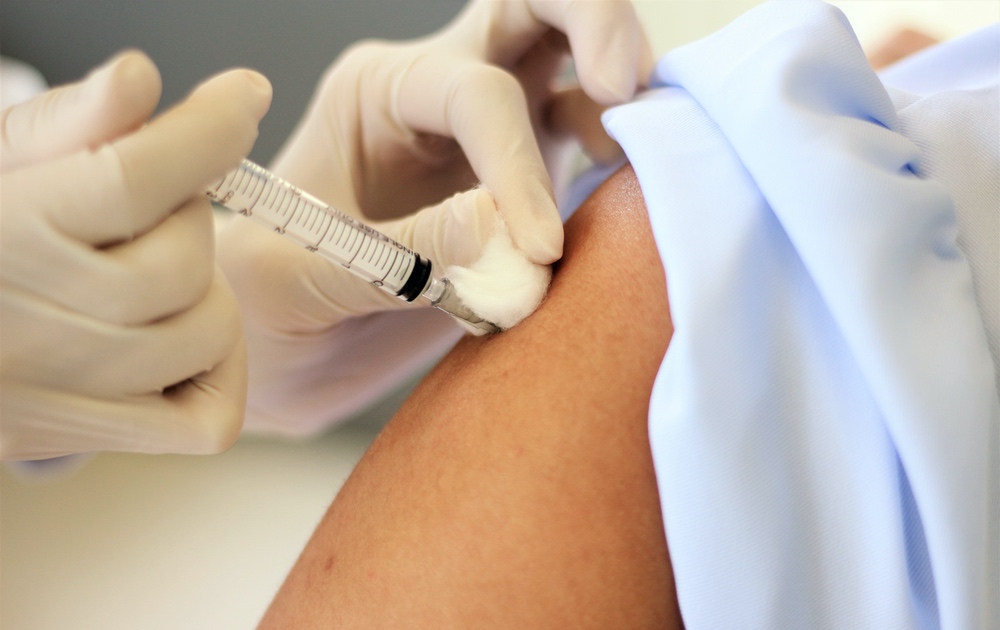Thousands of reports of menstrual irregularities, reproductive dysfunction following COVID vaccines
While the media have focused on blood clots, the UK has registered another phenomenon taking place after coronavirus vaccines.
April 19, 2021 (
LifeSiteNews) – Thousands of women around the world are reporting disrupted menstrual cycles after receiving injections of COVID-19 vaccines.
The U.K.’s government vaccine adverse event system has collected more 2,200 reports of reproductive disorders after coronavirus injections, including excessive or absent menstrual bleeding, delayed menstruation, vaginal hemorrhaging, miscarriages, and stillbirths.
In the U.K., the Yellow Card adverse event reporting system includes 2,233 reports of “reproductive and breast disorders” after reception of AstraZeneca and Pfizer vaccines.
The U.K. Yellow Card program reports 1,465 reactions involving reproductive systems as well as 19 “spontaneous abortions” (miscarriages), five premature labors, and two stillbirths in association with the AstraZeneca vaccine as of April 5.
The reports include:
- 255 cases of abnormal uterine bleeding
- 242 reports of unusual breast pain and swelling
- 182 women who experienced absent or delayed menstruation
- 175 cases of heavy menstrual bleeding
- 165 cases of vaginal hemorrhaging
- 55 reports of genital swelling, lesions, rashes or ulcerations
- 19 cases of postmenopausal hemorrhaging
- 12 cases of premature or “artificial” menopause
Another 768 reports of “reproductive and breast disorders” have been reported for Pfizer’s coronavirus vaccine in the U.K., as well as 42 “spontaneous abortions,” five premature labor onsets, and two stillbirths. These include:
- 265 reports of breast changes, including 22 reports of breast cancer and 177 reports of breast pain
- 134 cases of irregular menstrual bleeding
- 127 reports of absent or light menstruation
- 92 cases of heavy bleeding
- 73 cases of vaginal hemorrhaging
- 5 reports of postmenopausal hemorrhaging
- 5 cases of premature or ‘artificial’ menopause
Male reproductive disorders are fewer, but 75 Yellow Card reports on AstraZeneca’s vaccine include 63 erectile dysfunction reactions, 50 cases of testicular pain, 11 cases of scrotal pain and swelling, and three reports of haematospermia, or blood in sperm.
Pfizer’s Yellow Card includes 22 reports of testicular and scrotal pain and 21 counts of sexual dysfunction.
None of the Yellow Card reports reveal details about the individuals who experienced the side effects. However, 32-year-old Lorri Emmily Lowe of the U.K. said she felt cramping three days after receiving AstraZeneca’s vaccine in February.
“I also had a completely unusable arm for 24 hours,” she told LifeSiteNews. “It was excruciating and I was pretty much bed-bound just because of the arm. I had to laugh like a mad person for strange pain.”
Lowe said she felt “out of sorts” for about three days but what worried her most was that her menstrual cycle that had been predictably “perfect” for 10 years (not including pregnancies) suddenly vanished.
She had a strange “spotting” episode that she has never had in her life before and her period was five days late. “I’m never late. I’ve been consistent for many, many years,” she said, and when it did come on it was “super heavy and lasted eight days.”
Lowe’s cycle has returned to normal now but is quite heavy. “I do not see how out of the six years since I’ve birthed a baby, that was the one month my cycle decided to go haywire.”
The U.S. Vaccine Adverse Event Reporting System (VAERS) documents similar reproductive complications.
“My period has always been regular. Expected period was to begin on 02/22/2021 (after second vaccine dose) and bleeding did not occur,” a 25-year-old woman from Pennsylvania, who received both doses of Moderna’s vaccine, reported to the system, which is run by the U.S. Centers for Disease Control and Prevention.
One VAERS report describes a 51-year-old woman from Georgia who received a first dose of Pfizer’s vaccine in January and within three days developed a blood rash (petechiae) on her ankles that gradually spread to her knees. She was admitted to the hospital five days after her vaccine with vaginal bleeding and anemia. She was diagnosed with Disseminated Intravascular Coagulation, a blood clotting disorder, which led to her worsening liver function, painful leg swelling, and purple discoloration. She died February 11.
[VAERS ID 1032163-1]
Write-up: Patient received dose #1 of COVID-19 vaccine on 1/16/21. Within 3 days, she developed petechiae up to ankles, later rising up to her knees. Pt admitted to hospital on 2/6/21 for symptomatic anemia 2/2 vaginal bleeding. Patient received 4 units FFP, 4 units PRBC, 1 unit cryoprecipitate, and vitamin K 5 mg IV. Also started on medroxyprogesterone 20 mg PO TID. Alectinib d/ced due to worsening liver function. Evalauted by OB/GYN and Hematology. Diagnosed with DIC. Patient with worsening bilateral lower extremity edema and purpura with pain and weakness. Palliative care consulted. Patient passed away on 2/11.
A 48-year-old woman from Texas received a first dose of Moderna’s COVID-19 vaccine in January and 13 days later was hospitalized with heavy vaginal bleeding and a critically low platelet count.
[VAERS ID 0958885-1]
Write-up: The patient was seen in my office on 1/19/21 with complaint of heavy vaginal bleeding. A CBC was obtained which revealed an H/H of 12.2/36.1 and a platelet count of 1 (not 1K, but 1 platelet!) and this was confirmed on smear review. She was immediately sent to the Hospital ED and repeat CBC confirmed the critically low platelet count. She is currently hospitalized and she has received platelet transfusions but her platelet count is still critically low. She is also receiving steroids and immunoglobulin and is under the care of MD (Heme/Onc)
VAERS also includes 26 reports of miscarriage or other “fetal demise” events after COVID vaccinations.
A 40-year-old pregnant physician from California described a patient’s first dose of Pfizer’s vaccine as a “lethal event for the fetus” that led to her delivering the baby stillborn six days later.
[VAERS ID 958755]
Write-up: Pt was 18 weeks pregnant at the time of the vaccine. Second pregnancy. Pt is a physician. Pregnancy was entirely normal up to that time. On 1/18/2021, she began to have heavy vaginal bleeding probably due to a placental abruption and subsequently delivered at 18 weeks. Baby was stillborn. Ultrasound done 1/15/2021 normal. Lethal event for the fetus. The patient did well.
“Something insulted this placenta to lead to fetal demise,” read another VAERS report on a 24-year-old woman who began bleeding two weeks after receiving a first dose of Pfizer’s COVID vaccine in February.
[VAERS ID 1074788 ]
Write-up: At 8 weeks pregnancy (2 weeks after first shot) started bleeding and had a subchorionic hematoma. By 10 week subchorionic hematoma resolved. Received second shot and of Feb. 1 week later, at 12 weeks pregnancy , fetus had no heart beat! It measured normal size (as expected) and limited normal first trimester anatomy by ultrasound. But NO heart beat. Something insulted this placenta to lead to fetal demise.
In most cases, deaths of unborn babies were recorded only as “life-threatening” or as “hospitalizations” for the mother, as in the case of a 35-year-old Ohio woman. The woman lost her baby after she was vaccinated with a first dose of Moderna’s COVID vaccine on the same day that an ultrasound and genetic screening showed the 20-week-old baby to be in good health.
[VAERS ID 1033412]
Write-up: 20 weeks gestation at time of vaccine administration. Saw OB that morning (1/12/21), normal exam and fetal heart rate. Normal anatomy scan 1/8/21, normal genetic screening. Fetal demise noted at 24 week OB visit on 2/9/21, stillborn baby delivered 2/12/21.
Moderna and Pfizer did not immediately reply to questions about their vaccine and fertility. “It has been incorrectly suggested that COVID-19 vaccines will cause infertility because of a shared amino acid sequence in the spike protein of SARS-CoV-2 and a placental protein,” Jerica Pitts, a Pfizer representative, claimed in an
email to the Associated Press in December, however. “The sequence, however, is too short to plausibly give rise to autoimmunity.”
Animal studies to investigate the cross reaction of spike protein targeting COVID vaccines with Syncytin-1 have not been conducted to determine if autoimmunity can arise or not.
more at
Thousands of reports of menstrual irregularities, reproductive dysfunction following COVID vaccines | News | Lifesitenews















